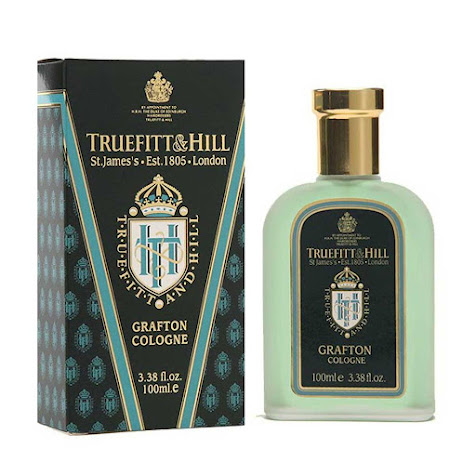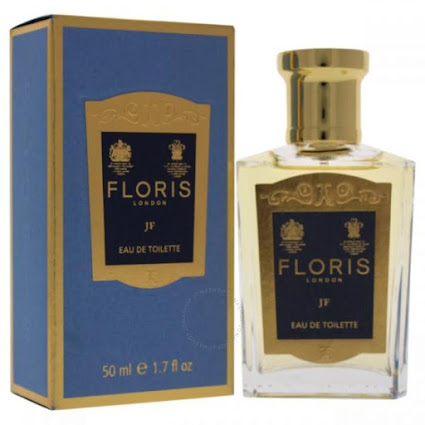Everyone's nose is different, and while some smell Grafton cologne as being similar to things like Rive Gauche and Égoïste, I smell a clumsy reinterpretation of YSL Jazz in this quiet little aromatic fougère. The funny thing about Jazz is that it used to cost less than Grafton, but since it's been discontinued, reissued, and discontinued again, the more stalwart Grafton is now the bargain of the two. Go figure.
The differences are obvious, however. Where Jazz is tighter, more lucid, and more closely focused on the aromatics that comprise its crisp fougère accord, Grafton inhabits the laid-back mould of barbershop fougère, with brighter green notes of citrus and stemmy florals on top, followed by a dustier coriander-spice midsection, before it settles on an extremely dry woody amber that acts like a snooty glorified aftershave rather than a properly realized upscale fragrance. Longevity is middling, note separation is just okay, and the whole affair makes me want to reach for Jazz to energize things.
Between Grafton and JF, I've come to think of the Brits as being relatively clueless about perfumery compared to the French. British compositions seem unoriginal, and the quality isn't where it should be. Geo F. Trumper's colognes are an exception, although even those could be better. Perhaps it's why Luca Turin had nary a good thing to say about English perfumes in The Guide. Genius in perfumery is clearly not found in London.


